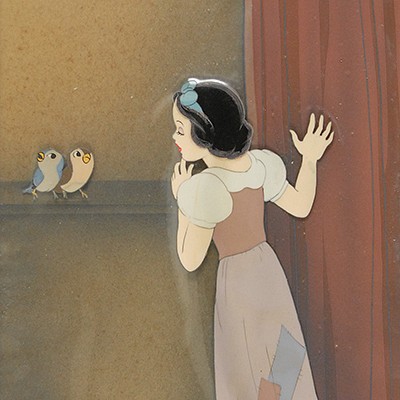Paul Klee Autograph Letter Signed
Two ways to bid:
- Leave a max absentee bid and the platform will bid on your behalf up to your maximum bid during the live auction.
- Bid live during the auction and your bids will be submitted real-time to the auctioneer.
Bid Increments
| Price | Bid Increment |
|---|---|
| $0 | $5 |
| $50 | $10 |
| $200 | $25 |
| $500 | $50 |
About Auction
Dec 7, 2022
RR Auction support@rrauction.com
- Lot Description
Important Swiss-German artist (1879-1940) whose works incorporate a number of the most influential movements of the day, including Surrealism, Expressionism, and Cubism. ALS in German, signed with his initials, four pages on two sheets, 5.75 x 8.5, December 9, 1933. A handwritten letter from Klee to art historian Alois Schardt, penned just days before fleeing Nazi Germany for Switzerland. Schardt had, the previous month, been dismissed from his post as curator of the new department of the Berlin National Gallery due to his inclusion of impressionist works that were not considered sufficiently Aryan. Klee opens with the remark (translated), “Now, with your departure, the best pillar shifts from its position and with it goes the last hope. One would have to ask: what will the art that is so hotly sponsored by the state look like? Would not art be better off without the state?” The artist goes on to list a good many of his paintings (including Phantastische Flora and Vorspiel zu Golgatha), wanting to know of their whereabouts. He concludes, “Please write to me pretty soon; I’m getting ready to leave.” In fine condition. Klee’s last days in Germany were characterized by attacks from the Nazi press labeling him a degenerate who was producing art that was dangerous to society. Despite the pressures, he produced five hundred paintings in 1933 and reached the heights of his talents.
Accompanied by three letters written by Klee’s wife, Lily Klee, including a heartfelt letter to Schardt written on December 10, 1933, (a day after her husband’s letter), in which she writes, in part: “Why has an artist like Klee, a man of such strong creative force, of such pure character and convictions, of such creative teaching work fallen into total disgrace in the new Germany? Why has he been deleted from all public work, he, the artist who, in his visionary views and his soul steeped in music, is the strongest representative of German-ness? He, who stood and stands entirely outside of the political sphere; who has made it solely through his œuvre and his tireless work, in the purest fashion and without ever compromising or taking advantage of a connection. What influence was at work to expel one of the best German personalities from the ranks of creative minds? And wasn’t there anybody who enlightened those in leading positions? Even his international reputation has been turned into an accusation…His contract, good yet for years, has been canceled. He is forbidden to teach and to have exhibitions…Klee himself stands above all these goings-on; it is as if he were on a different plain where things cannot reach him; because he keeps working to spite all enemy forces." - Shipping Info
-
Bidder is liable for shipping and handling and providing accurate information as to shipping or delivery locations and arranging for such. RR Auction is unable to combine purchases from other auctions or affiliates into one package for shipping purposes. Lots won will be shipped in a commercially reasonable time after payment in good funds for the merchandise and the shipping fees are received or credit extended, except when third-party shipment occurs. Bidder agrees that service and handling charges related to shipping items which are not pre-paid may be charged to a credit card on file with RR Auction. Successful international Bidders shall provide written shipping instructions, including specified Customs declarations, to RR Auction for any lots to be delivered outside of the United States. NOTE: Declaration value shall be the item’(s) hammer price and RR Auction shall use the correct harmonized code for the lot. Domestic Bidders on lots designated for third-party shipment must designate the common carrier, accept risk of loss, and prepay shipping costs.
-
- Buyer's Premium



 EUR
EUR CAD
CAD AUD
AUD GBP
GBP MXN
MXN HKD
HKD CNY
CNY MYR
MYR SEK
SEK SGD
SGD CHF
CHF THB
THB
















